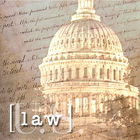
Article I, Section 1, US Constitution: First Amendment to the US Constitution: Seventh Amendment to the US Constitution:
|
PASSAGE OF BILL TO GRANT 'TEMPORARY' AUTHORITY TO SPY ON AMERICANS SEEN AS DEFEAT FOR CIVIL LIBERTIES ADVOCATES, CONSTITUTIONAL PRINCIPLES 5 August 2007 The Democrat-controlled US Senate yesterday passed a bill that would authorize the president to not only continue, but to expand his use of extrajudicial wiretapping, a practice ruled unconstitutional last year by the Supreme Court. Analysts suggest that Democrats caved to White House rhetoric, for fear of being considered 'soft on terror'. Civil libertarians say the vote is a dark day for US Constitutional law. Specifically, Caroline Frederickson, of the American Civil Liberties Union, told the press "The Democrats caved in to the politics of fear we're seeing from this administration. They didn't want to be depicted as soft on terrorism. But this measure removes any court oversight from surveillance on Americans in a large number of cases." Sen. Russ Feingold (D-WI) said the bill "goes far, far beyond" what the White House had initiated when Pres. Bush secretly approved the NSA surveillance program struck down by the Supreme Court. And while the White House and its allies in Congress want legislation to "permit" such surveillance, it is unclear whether any extrajudicial spying can be conducted on American soil without an amendment that waters down the 4th Amendment to the Constitution. The AP reports "The White House offered a compromise to the Democrats on Friday, saying it would agree to a court review of its foreign intelligence activities instead of leaving certification up to the attorney general and director of national intelligence. But it attached conditions: that the review be after the fact and involve only the administration's general process of collecting the intelligence, not individual cases". The question is what, precisely, the problem would be for any court to review the validity of surveillance conducted, before or after the fact, in "individual cases", as the Constitution mandates. The provision would leave open the very real possibility of a grave rift between the functioning of a law-enforcement process and the justice system established by the Constitution itself, meaning that it may be impossible to use evidence at trial. In sum, the measure appears to be a temporary fix to existing legal problems inherent in the blanket surveillance program. More than likely, the new powers laid out will have to be rolled back in keeping with Constitutional law, and the same debate will re-emerge in 6 months' time, if the bill does become law. [s]
BACKGROUND: FBI director Robert Mueller, the top law-enforcement agent within the Justice Department, testified before that House Judiciary Committee that there was in fact a heated confrontation between senior Justice Department officials and White House aides in 2004, regarding President Bush's warrantless NSA wiretapping program. [Full Story] FMR ACTING ATTORNEY GENERAL SAYS BUSH INTERVENED TO HALT MASS RESIGNATIONS OVER NSA PROGRAM Testifying before the Senate Judiciary Committee, James Comey, former deputy attorney general, who acted as AG during Ashcroft illness in early 2004, said Pres. Bush intervened to halt a raft of resignations in protest over the policy clash. Comey reportedly had to rush to AG Ashcroft's hospital bedside to prevent White House officials from gaining authorization, despite official opposition from Justice Dept. lawyers and then acting AG Comey. [Full Story] ACLU ACQUIRES GOV'T DOCUMENTS SHOWING SURVEILLANCE OF PEACEFUL, LAW-ABIDING GROUPS New information acquired by the ACLU by way of the Freedom of Information Act, shows the FBI and the Joint Terrorist Task Force have been monitoring, infiltrating and spying on innocent, law-abiding individuals and both non-religious and faith-based activist groups whose activities are entirely peaceful and are protected by the First Amendment to the US Constitution. [Full Story] AT&T SUED FOR VIOLATING LAW IN NSA DOMESTIC SPY PROGRAM AT&T was once the nation's telecommunications monopoly, and abuses there led to the break-up of the Bell monopoly and the regulation of telecoms, with the intent of encouraging competition and achieving the goal of forcing providers to serve the customers first. Now, the Electronic Frontier Foundation has filed a lawsuit alleging that the telecommunications giant has violated federal law by assisting the government in spying on innocent Americans without any court authorization. [Full Story] DATA SHADOWS & IMPROBABLE CONSENT Neither contracts nor "terms and conditions" including indemnities disclaimers, can be classified as legislation. They do not make or construct legal limits by themselves. Obvious as this may seem, it is a necessary introduction to the problem of the trade in personal information and "soft surveillance", whereby one is routinely subjected to interrogation, inspection and even physical search, not for having broken any laws or even aroused any reasonable suspicion, but simply because "that's policy". [Full Story] |
|||||||||||||||||||||
|
||||||||||||||||||||||




